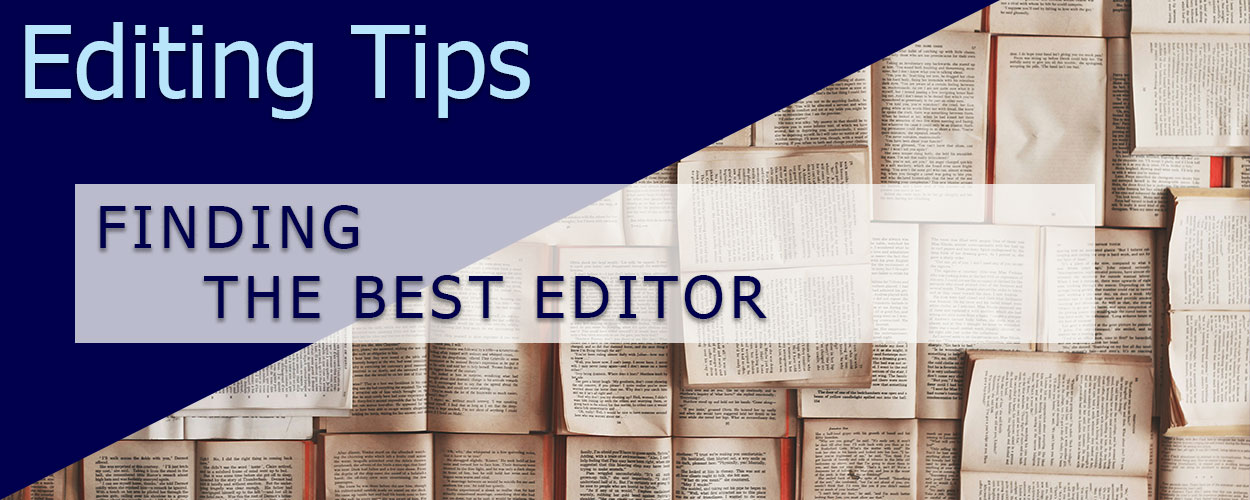

Posted: December 3, 2024
Finding the perfect editor is always the goal for authors. Someone who brings your work to the next level, who ensures a professional-looking final produce, and who is affordable on top of that.
That would be the life.
Unfortunately, no such “perfect” editor exists, because every author and every project is different. Don’t go looking for the perfect editor; look for the best editor for YOU. So—how do you do that?
Your first step is to know your book. By the time the first draft is complete, it should be clear to you. What is the length of your book? The main genre? The direct subgenres? Your audience? All editors have specialties, so knowing these details will help you not only to find the right editors, but ensure you don’t waste time talking to the ones that can’t give you their best work.
You wouldn’t send your Non-fiction Memoir to an editor who specializes in Fantasy, would you? Nor would you send an Adult Erotica novel to an editor who specializes in Children’s books. Who is best suited to help you?
The second step is to know what you’re looking for. You can’t get your manuscript turned into a printable PDF before the story is even done, nor would you hit “publish” before getting a cover design. Make sure you’re going about the editing and publishing process in the right order, and figure out what step you’re on.
[Related article: The Best Order to Edit Your Book]
Getting a feel for your potential editors before you commit is the best way to ensure quality and success. For every editor you approach, ask for a sample edit. Most editors will do this for free; others will ask a small amount of compensation for their time.
Sample edits allow you to see what kind of work each editor offers: how they operate, what they catch, their level of detail. It also allows the editor to gauge your manuscript: how much work it needs, where your main struggles are, etc. This makes it easier for them to give an accurate quote for the project as a whole.
The most important thing you can do to ensure you’ve chosen a reputable editor is to read the reviews about them. Ask other writers for recommendations. Take a look at who they’ve worked with and what those people had to say about their service(s). Were they easy to work with? Was their work fast and efficient? In depth? Were there any delays in the project? All these details are important.
You may want to get the editing over with so you can publish your book as quickly as possible, but the worst thing you can do is rush. Make sure your manuscript is the best it can be before going to an editor. Don’t just write your first draft and immediately send it out. Give yourself a week or two before rereading it and making notes to yourself. Use tricks like printing it out, reading aloud to yourself or others, or using a text-to-speech reader to catch any issues in the manuscript yourself.
Ensuring that your manuscript is as polished as possible before sending it out will not only make it less likely for the editor to miss anything, but it will also make the project cost less overall and will show your editor that you care about your book enough to take that time. If you show that you have some skills in the area of editing, they can give you more detailed/in-depth feedback rather than surface-level comments to fix the big errors.
Even if you don’t have those skills, or are just working on your first manuscript, they will see the effort you’ve placed in the work and be motivated to put more effort in themselves. It allows them to be confident that you will take their feedback to heart and are not just looking for a professional to praise your “genius” (some authors are actually like this!).
Sometimes with content editing, big rewrites are needed to fix plot holes, or scenes need to be rewritten because a character isn’t acting the way they should. With these, typically you’ll send the manuscript back to the editor so they can review your changes, and this is an additional cost as well (typically reduced to 50%). But if you catch this first, and most of the changes you need to make are small ones, you won’t need to pay that extra cost.
So, how do you find the perfect editor for you? Be prepared. Be open. Take your time.
Should You Use One Editor or Multiple?
Working with an Editor Part 1: Content
Working with an Editor Part 2: Technical
The Best Order to Edit Your Book
Self Editing—And Why You Should Do It
How to Get the Most Out of Self Editing
Tigerpetal Press is a small book press dedicated to publishing local authors and poets.